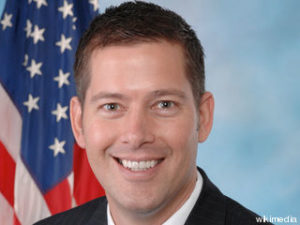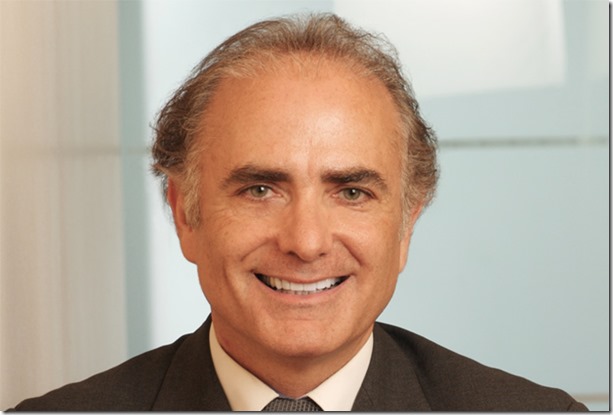Rep. Sean Duffy Pleads Poverty On $174,000/Year
Before Sean Duffy became a U.S. Congressman from Wisconsin in January, he was best known for being a cast member on MTV’s low-rent reality TV show, The Real World: Boston.
You would think that all of that time in front of the cameras would have prepared him for his new role as a cast member in the U.S. House of Representatives. But when a constituent asked him recently why his salary as a Congressman was so “out of line” with what average families earned, Duffy offered a tone-deaf response.
“I can guarantee you, or most of you, I guarantee that I have more debt than all of you. With 6 kids, I still pay off my student loans. I still pay my mortgage. I drive a used minivan. If you think I’m living high on the hog, I’ve got one paycheck. So I struggle to meet my bills right now.”
The problem here is not necessarily one of facts. Perhaps Mr. Duffy’s finances really are as tight as he describes. Moreover, he now has to add rent for a place in Washington, D.C. to his personal expenses.
Rather, the problem here is that he’s wickedly out-of-step with his constituents. As of 2008, the average per capita income for citizens of Wisconsin was $35,239. That means that Duffy earns almost five times as much as his constituents. I don’t begrudge him a nice income, but pleading poverty won’t work.
Reporters ask this type of question a lot – to business executives who lay off employees while accepting higher paychecks, to heads of utility companies who raise rates on poor customers while earning six figures, and to charity execs who cut services while accepting bigger pay packages.
In all of these cases, the response must be aligned with the needs and concerns of stakeholders. As examples, Mr. Duffy might have said:
“Congressional pay was set long before I arrived in Washington. But given how many Americans are suffering, I would absolutely support legislation that either cut Congressional pay or prevented it from increasing.”
or
“Yes, it’s too much money. And I’d gladly accept a paycut. But even more importantly, it begs a critical question: Can someone making $174,000 per year understand the challenges so many people are enduring? For too many people in Washington, I’m afraid the answer is no. But in my case, the answer is yes. For most of my life, I’ve had a lot of debt. Only since entering the House a few months ago did my check go up. I personally understand your struggles well, and I will fight every day for you.”
Instead, Mr. Duffy chose to pretend that his $174,000 salary isn’t a lot. And that’s something that just won’t sit right with people back home.
Related: GoDaddy.com CEO Kills Elephant, Remains Defiant in Face of PR Crisis




so let me understand your org Media training is teaching people to spin??
YOU ARE PART OF THE PROBLEM!
You Know that this is just not right yet you don’t care!!
Dear Mr. Lawler,
Thank you for your comment.
My firm, like all good media training firms, refuses to engage in “spin.” I strongly believe that for communication to be effective, it has to be honest. You can fool some people with dishonest communication for a period of time, but the public is usually smart enough to see through it.
Professional media trainers teach effective communications. There is great value in learning how to become a more effective communicator – it can improve the way people, businesses, and even nations interact with one another.
In the meantime, you’re not alone in your belief that media training is “spin.” I intend to address that misconception on the blog in the next few weeks, and hope you’ll check back in.
Best wishes,
Brad
Dear Mr. Phillips,
not only do your suggestions for Duffy qualify as spin, but your entire response to Greg conforms to the generally accepted definition.
As provided by Wikipedia: In public relations, spin is a form of propaganda, achieved through providing an interpretation of an event or campaign to persuade public opinion in favor or against a certain organization or public figure.
You sir, are a spin doctor and assertions to the contrary are fooling no one but yourself. The misconception is yours. Denial of obvious facts only damage your credibility, so why not just embrace it? Hey, at least he didn’t say your were Minister of Propaganda, for which Media Training Consultant is just a frilly euphemism.
I await your response, which I expect will be to delete these comments, and I will be checking back in to see how you intend to address this.
Best Wises,
Ike
Ike,
I disagree with your assessment, and I’ve made my case for the difference between “spin” and strategic communications here: https://www.throughlinegroup.com/index.php/2011/04/12/what-is-spin-vs-strategic-communication/.
I have no doubt that you’ll disagree with what I wrote there, but want to make it available to other readers who haven’t seen it yet.
I’m surprised you would assume I would delete your comments. I’m not afraid of respectful debate – and although yours wasn’t the kindest comment I’ve ever received, it was close enough to “respectful” for me to post it. Readers of this blog are smart, and I’ll let them decide which perspective they want to side with.
I am, however, skeptical of comments from people who refuse to leave their last names with their comments.
Best wishes,
Brad